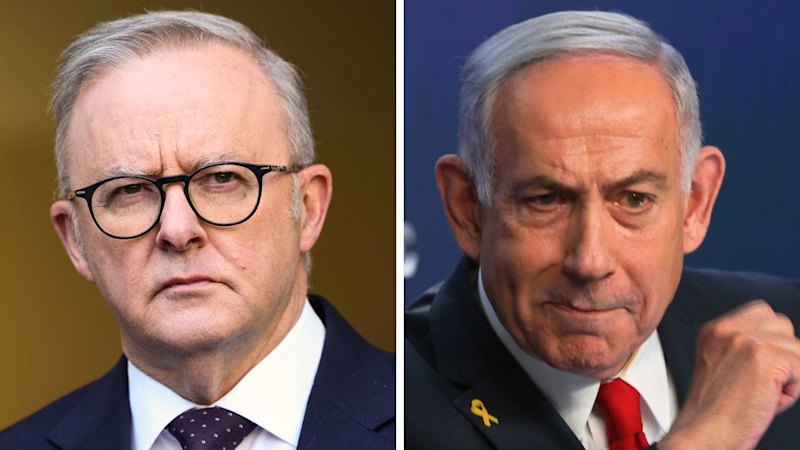
The Australian government has firmly responded to accusations from Israeli Prime Minister Benjamin Netanyahu, who criticized Prime Minister Anthony Albanese for allegedly appeasing Hamas. This exchange follows Australia’s decision to deny a visa to Israeli Knesset member Simcha Rothman, a move that has strained relations between the two countries.
Home Affairs Minister Tony Burke stated that Netanyahu’s remarks were a reaction to Australia’s visa cancellation, which was based on Rothman’s controversial comments regarding Gazan children, whom he referred to as “enemies” of Israel. Burke characterized Netanyahu’s response as “lashing out,” emphasizing that true strength is not demonstrated through violence or suffering inflicted on children.
In his remarks on ABC Radio National, Burke highlighted the importance of dialogue and the careful consideration that led to Australia’s decision. “Strength is not measured by how many people you can blow up or how many children you can leave hungry,” he asserted. He further noted that Albanese had shown strength by engaging with Netanyahu prior to Australia’s recognition of Palestine at the United Nations in September 2023.
Netanyahu’s criticism escalated after Australia recognized a Palestinian state, a move he condemned in a letter addressed to world leaders, including Albanese. The letter accused Australia of fueling antisemitism and stated, “Your call for a Palestinian state pours fuel on this antisemitic fire. It is not diplomacy, it is appeasement.”
The letter also claimed that Australia’s actions embolden Hamas and threaten the safety of Jewish communities worldwide, a sentiment echoed in a similar correspondence sent to French President Emmanuel Macron, who has also supported Palestinian recognition this year.
As tensions rise, Burke expressed that he had not seen Netanyahu’s letter but reiterated Australia’s commitment to a balanced approach in international diplomacy. The Albanese government continues to engage in discussions aimed at fostering peace and stability in the region, emphasizing the need for dialogue over conflict.
The ongoing diplomatic rift highlights the complex nature of international relations, particularly concerning the Israeli-Palestinian conflict. Australia’s position remains focused on advocating for a two-state solution, a stance that may further complicate its relationship with Israel in the coming months.
Further developments are expected as both countries navigate this sensitive diplomatic landscape.







